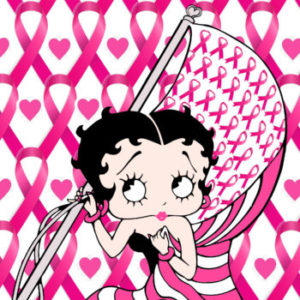 INFORMATION, QUESTIONS & ANSWERS
INFORMATION, QUESTIONS & ANSWERS
Happy October everyone and welcome back to the Blog. In addition to the changing leaves, the chilly nights and the shorter days, this month also is recognized as BREAST CANCER AWARENESS MONTH.
As we continue to navigate a world that has forever been changed by a world-wide Pandemic, we can’t forget to remain vigilant in monitoring our own overall health and taking care of ourselves. And one of these health issues that women in particular must recognize and address is breast cancer.
Breast cancer strikes over 200,000 women every year, and thirteen years ago I was one of those women. Accordingly, every year I pay homage to the fighters and survivors of this disease, and honor those who have been taken.
Like many of you, I wear several hats. In addition to being a health and wellness advocate, a writer, blogger and speaker, I also run a family-owned business with my husband known as Fleischer Studios, which is a licensing and merchandising business that controls the rights to several cartoon characters, including the iconic Betty Boop.
It’s my tradition to include Betty Boop as my co-host in delivering this important annual message because Betty has always been a champion of women’s causes and a devoted proponent in raising awareness for the health issues faced by women every day. For a hundred years, she has remained a beacon of hope and positivity, and so it’s with great pleasure that I join forces with Betty, and our entire team at Fleischer Studios, to discuss this incredibly important topic with you.
To start, we’re going to address three of the most commonly asked questions about breast cancer.
WHY DO WOMEN GET BREAST CANCER?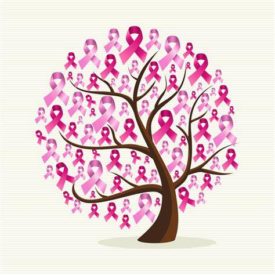
Although men also can develop breast cancer, the greatest risk factor for this disease rests in simply being a female. In fact, breast cancer occurs 100 times more often in women than men. Women have more fatty breast tissue than men, and the cells in this tissue are constantly exposed to the female hormones estrogen and progesterone, which influence the development of cancerous cells. This is why women who experience longer cycles of menstruation have a greater risk for breast cancer. Similarly, women who have never had children or who had children at a later age also have an increased risk for the disease.
WHAT IS THE RATIO OF WOMEN WHO GET BREAST CANCER?
As of 2021, the average risk of a woman in the United States developing breast cancer during her lifetime was around 13 percent. This means that every woman has a 1 in 8 chance of developing the disease. Yet keep in mind, this also means that there is a 7 in 8 chance a woman will never develop the disease. It’s also important to note that as we age, our risk for breast cancer increases as the disease typically strikes women over the age of 55.
WHAT RACE/ETHNICITY IS MORE LIKELY TO GET BREAST CANCER?
Caucasian women have a slightly greater risk for developing breast cancer than African American, Hispanic or Asian women. However, African American women are more likely to develop more aggressive and advanced-stage breast cancers, and at a younger age.
As a survivor of breast cancer, I know that survival is based on many factors. To that end, here are a few more tips of which we need to be aware.
Family History
Women who have a first degree relative – a parent, sibling or child – who have had breast cancer have an increased risk for developing the disease as well. This is especially true if that relative was diagnosed before the age of 50.
 Personal Medical History
Personal Medical History
Research has shown that HRT or Hormone Replacement Therapy can elevate one’s risk for breast cancer, as can fibrosis of the breast, which refers to and describes unusually dense breast tissue.
Genetic Anomalies
If one has inherited a mutation in the BRCA1 and BRCA2 genes, the risk for breast cancer is greater. And a mutation in these genes is greater still if one is of Ashkenazi Jewish descent.
Lifestyle Choices
Eating properly, exercising, enjoying alcohol in moderation and eliminating tobacco use will offer protection and lower our risk for the disease.
And, of course, taking advantage of the proper tools for early detection are vital for successful treatment and survival. So, don’t forget the following:
- Mammograms
- Screening ultrasounds
- Self-exams
- Regular doctor visits
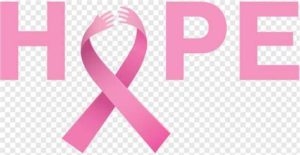 What is the main takeaway message from Betty and me today? It’s that breast cancer is beatable. Never give up hope. Just ask the millions of women who’ve survived the disease – like me!
What is the main takeaway message from Betty and me today? It’s that breast cancer is beatable. Never give up hope. Just ask the millions of women who’ve survived the disease – like me!
We are all WELLNESS WARRIORS in this fight against breast cancer, and Betty and I can’t thank you enough for joining us in the battle.
Until next time everyone, Be Aware, Be Informed, Be Proactive, stay in GOOD HEALTH and . . .
TAKE THE COURSE AND TAKE CHARGE!

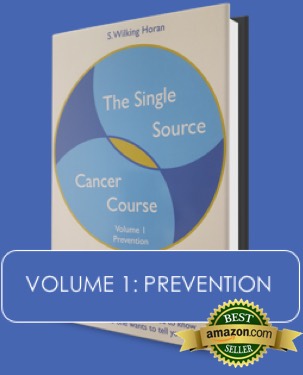
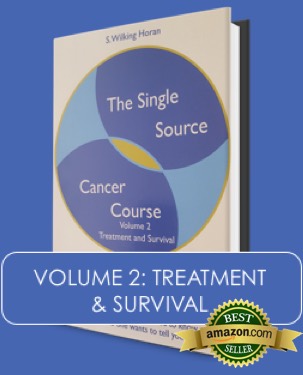
Leave a Comment